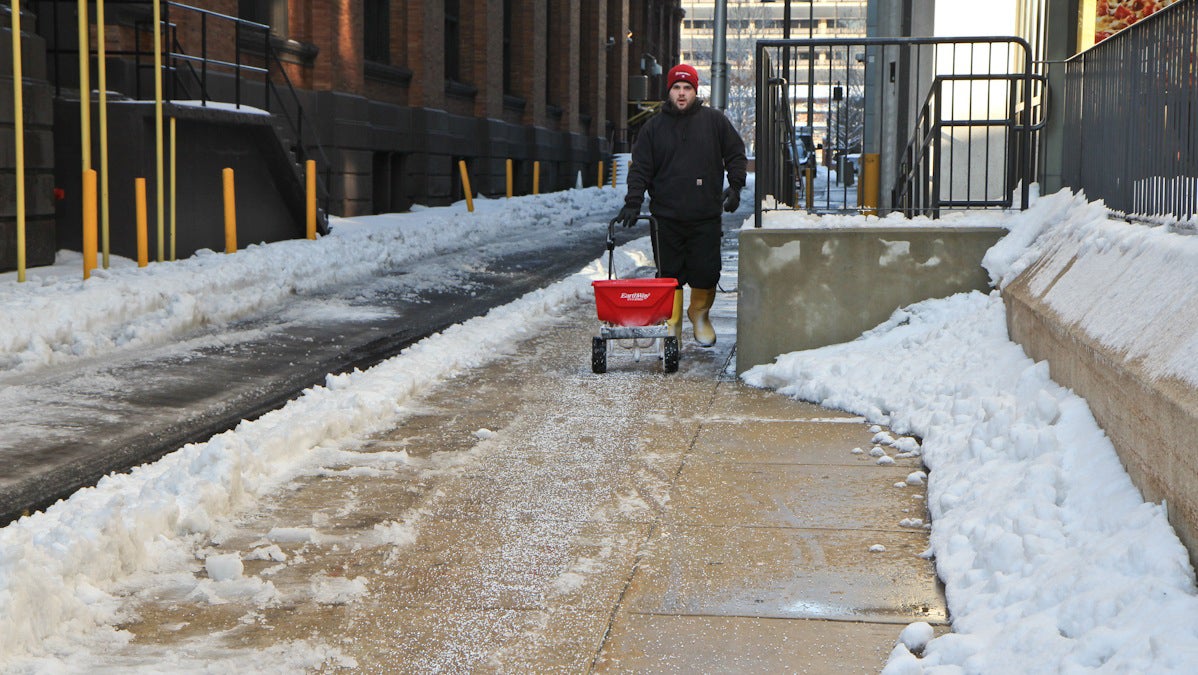All that road salt is hurting area waterways
Listen
Old City sidewalks get salted. (Kimberly Paynter/WHYY, file)
The amount of salt that trucks have dumped onto Philadelphia roads is already more than the amount used during that last two winters combined, say city officials.
So where does it all end up?
“Well, the bulk of the salt really winds up going directly into whatever receiving waters the drainage from the municipality drains into,” said Charles Haas, an environmental engineering professor at Drexel University. “So in the case of Philadelphia, principally the Schuylkill and the Delaware.”
That’s likely bad news, Haas says. Saltier waters hurt river plants and animals, and once the salt gets in, it’s nearly impossible to get out.
“There’s really no realistic treatment you could use,” said Haas. “It would require very, very sophisticated and expensive membrane systems to remove the salt, and virtually no utilities do that.”
The Philadelphia Water Department says it’s focused on minimizing the amount that gets in in the first place. Spokeswoman Laura Copeland says the department is working with other city agencies on a set of best practices.
“We ask that they plow or transport snow to land areas isolated from environmentally sensitive areas,” Copeland said. “We’ve been working with our partners to brine and salt before storms to reduce overall salt application.”
Research suggests that road salt is also a potential threat to the region’s water supply over the long term.
Tracy Carluccio, the deputy director of the Delaware Riverkeeper Network, says high salt content could eventually lead to adverse health impacts, especially for people with conditions such as hypertension.
“Everyone needs, for public safety, to have that salt put on the roads,” Carluccio said. “However, there are things that we can do in terms of best management practices that decrease the amount of chlorides [washing into rivers and streams].”
One technique being adopted by many road crews is spraying roads ahead of time with a salty brine solution. Some research indicates this approach may reduce the amount of salty runoff polluting area waterways.
WHYY is your source for fact-based, in-depth journalism and information. As a nonprofit organization, we rely on financial support from readers like you. Please give today.




